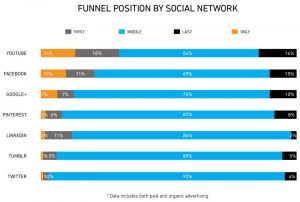By adopting a David vs. Goliath mindset, SMBs can find opportunities for growth even in a market riddled with hostile competition
In 2017, The Onion published a letter ostensibly penned by Jeff Bezos, titled “My Advice To Anyone Starting A Business Is To Remember That Someday I Will Crush You.” In the letter, “Bezos” goes on to illustrate the essential steps young entrepreneurs need to take to achieve business success—here defined as the moment when they become interesting enough for Amazon to wipe out: “Execute the basics correctly and you’ll be in great shape when I come along and rip away your dreams with one emotionless pen stroke,” the text goes.
The letter ends on a sobering note: “Remember, this is your dream… You’ve staked everything on it. So never lose sight of the vision that brought you to this point, and never forget that I can and will use the insurmountable powers that I wield to snuff out your dream like a candle, condemning you to a bitter darkness of misery. Good luck!”
Not surprisingly, the “letter” resonated with founders, entrepreneurs and small and medium business owners across industries. In an economy that has been constantly desensitized to a culture of hostile takeovers, that’s hardly surprising.
Turn Disadvantages to Opportunities
Competition in digital businesses is indeed ruthless. Internet giants crush budding businesses with ease, thanks to their wild advantage in size, resources, and know-how. In every industry or vertical, the internet giant might duplicate the new products or services and sell them at uncompetitive prices, introduce key original features of said product or service into its own (often free) offering, invest a ridiculous amount of marketing resources to outshine the small business, or outright buy it and dismantle it from within.
But while this staggering inequality often manifests as a threat, it also harbors exactly the kind of opportunities that small businesses need to grow. This power shift happens when business leaders stop conceiving a disadvantage in size and resources as a drawback, and instead, see the advantages it can create.
The quintessential example here, of course, is that of David and Goliath. If we cast the biblical story into the setting of digital businesses, we can quickly outline the players. Goliath is the internet behemoth, bringing to the table brute force, large budgets, broad strategy, and masked strength. This is indeed an unappetizing proposition—unless you confront it with a David mindset: by using pinpoint accuracy, agility, strategy, and creativity, you can use your apparent disadvantages to get the upper hand.
Play to Your Strengths
How does this work out in practice? The Davids of the world have several levers at their disposal, each offering a unique set of advantages that no Goliath can claim:
Focus & Value Proposition
Be a niche player. This is really a no brainer. A small business needs a value prop that outweighs that of bigger companies, at least by one key differentiator. And that one differentiator can stem directly from the business’s younger evolutionary stage. For example, a local business should emphasize its local values. A B2B company can focus on a customer success program that can only be delivered with the agility and commitment of a startup. UK vegan cosmetics brand Lush is giving bigger, far more established brands a run for their money with exactly this kind of strategy. Remember that consumers’ preferences are constantly shifting towards valuing specialists over generalists.
Brand Personality
Companies that dominate the market are often at a stage where size limits opportunity. They have no choice but to be more conservative in order to protect their mass-market appeal. Startups and small businesses, on the other hand, are free to adopt a more edgy, funny, ridiculous or in-your-face personality. Take Lemonade as an example. Lemonade is taking on huge insurance brands by adhering to a distinct, young, relatable persona, that makes splashes which bigger brands simply can’t afford.
Customer Obsession
Large companies operate on a large scale: they can’t support the unique needs of every customer. You either fit the mold, or you don’t. Smaller companies can agilely develop their products to meet customer needs even in the face of changing market dynamics. The prime example here, of course, is Warby Parker. As a small company, it supremely succeeded in solving the customer’s biggest problem and understanding why it’s a problem in the first place. Create a culture of empowerment to solve problems for your customers. Prioritize the quality of your products and services over anything else.
Marketing & Customer Acquisition
Smaller companies need a customer acquisition operation based on precision: they can’t afford to simply spray and pray. This is where the more pinpoint approach outlined in the previous sections can also serve acquisition objectives. As the case of Dollar Shave Club demonstrates, even with limited resources you can take more risks with externalizing your brand personality than your larger counterparts—even at the cost of alienating certain audiences in favor of meaningful growth. A large, more conservative company that would use the same strategy will risk negative backlash from its core audiences.
Content
Smaller companies can take a stand for something and speak their mind without risking alienation from partners and audiences. Be different. Speak your mind freely and customers will follow. Rihanna’s super-inclusive cosmetics brand Fenty is doing exactly that, creating a huge, dedicated following. We’re not all Rihanna, but still — stand for something, say it well, and leverage your social channels and partnerships to make sure your ideas create traction.
Summing up
For small companies, the struggle can often be summed up as an ongoing effort to seem larger than you are. Customers need to experience that hard to define sense that they can count on you to deliver what you stand for, that you are tried and true, and that sense is tightly connected to online presence and social proof. With a unique brand personality, content and voice, and an outstanding value proposition that’s smartly externalized, you will quickly appear bigger than you are. Just remember not to become ruthless 🙂
Business & Finance Articles on Business 2 Community
(63)






